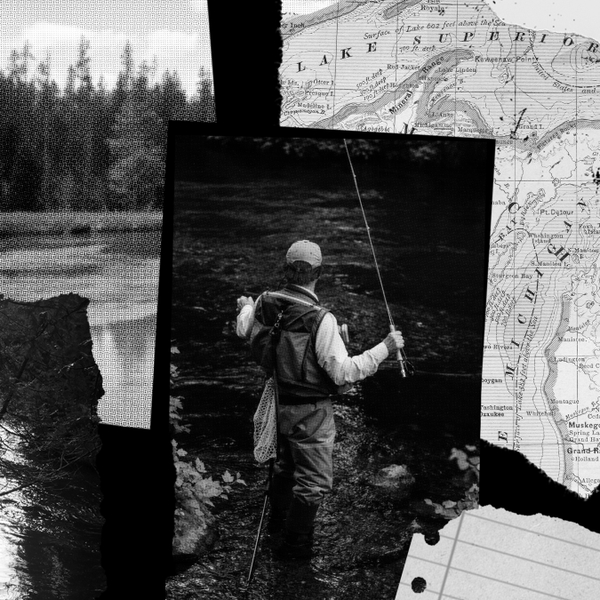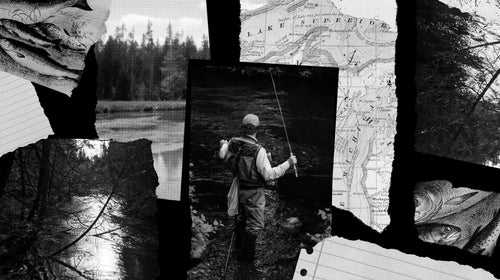Leaving the Grace of This World
More than 17 years ago, a successful Michigan attorney took his life on a cherished trout stream, devastating close friends and family. Haunted by what happened, his nephew investigated and discovered tragic truths that were in plain sight all along.
New perk: Easily find new routes and hidden gems, upcoming running events, and more near you. Your weekly Local Running Newsletter has everything you need to lace up! .
If you or someone you know is having thoughts of suicide or self-harm, call the toll-free from anywhere in the United States at 1-800-273-8255, or text HOME to the Crisis Text Line at 741741.
COVID-19, wildfire smoke and hurricanes, the chaotic state of the body politic, and all the troubles in the world have me seeking shelter lately. I’ve been thinking about my Michigan uncle, and how he lived large and died too young. I’d like to tell you about him. Maybe there’s something to be learned in his story: a way not to live, and a way not to die, and how to make better choices after we’re sprung loose to resume whatever it is we call normalcy in the dawning of the post-pandemic era.
When I turned 13, on the occasion of my bar mitzvah, my Uncle Richard gave me a set of barbells and a subscription to Penthouse. He taught me how to fish for trout in Michigan rivers before I entered my teens��and liked to give me philosophical tips on ways to live. “You know,” he was fond of saying, “you can never be too good-looking, too tanned, or make too much money.”
He was 31 when his second marriage failed; he swore off the institution and got a vasectomy. He would often tell my mother that my younger brother and sister and I were the children he’d never have.
He was handsome, with a square face and a straight Greek nose and a strong chin. My stepfather called him Richard the Kid, because he was always on the make and never showed signs of settling down. When my grandmother used to chide him that “there’s more to life than having fun,” he’d say she was wrong. “All there is to life is having fun, Mom.”
For most of his 58 years, he lived within ten miles of his birthplace in Pontiac’s Seneca Hills. He passed the Michigan bar exam in 1970 and then entered the Oakland County Prosecutor’s Office. He went by Dick Levine, and he discovered a gift for arguing jury trials. “I’m so good, I convicted an innocent man,” he told one of his ex-wives, who asked me not to use her name.
In 1973, he switched sides and hung a shingle: “Richard Jerome Levine, Criminal Defense Attorney.” He defended a wide range of people, from drunk drivers to drug dealers to men charged with date rape. He spurned plea bargains and backroom deals. He became famous in the county court for a streak of acquittals that some say reached into the seventies. He was renowned as the organizer of the Big Ten party, an annual holiday bash he threw with nine other attorneys at Santia Hall, a banquet space in nearby Keego Harbor. He always sang “Blue Christmas” with his buddy Patrick.
And then, suddenly, on Halloween night in 2002, he threw a party for himself at the Oakland County Boat Club. A poster said “BYE BYE RICHIE.” His friend Irene Santia, the owner of Santia Hall, catered the event.��There were cocktails and hors d’oeuvres, a celebration of his plans for a new life in Steamboat Springs, Colorado. Someone asked him when he would come back.
“Never,” he said.






